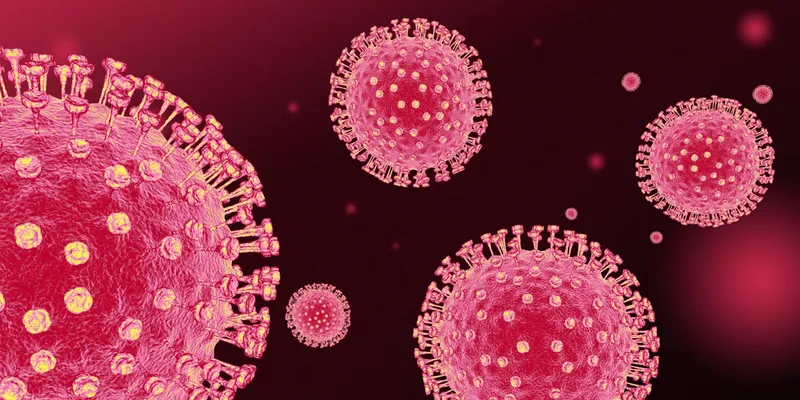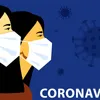The pandemic of our times: conversations on Covid-19 amid coronavirus outbreak
Since the WHO declared coronavirus infection pandemic, there is a sudden urge to protect ourselves from Covid-19. It's not only the disease we are hearing about constantly, but it also includes its symptoms, a massive shortage of masks, and hand sanitizers.

A massive shortage of masks, hand sanitizers, and more. There is a sudden surge to protect ourselves from this pandemic called Covid-19 caused by a novel mutation of the coronavirus. Didn’t we always know that “Prevention is cheaper than Cure”? I guess this mass hysteria can move people towards understanding the value of prevention and early detection.
While this may remind us of Robin Cook’s book called “Contagion” or “Pandemic”, the truth is that nature is smart and viruses tend to make their presence felt now and then. We saw over the past several decades, the emergence of SARS, MERS, Ebola, and now Covid-19.
What exactly is a virus?

Many of my friends have started asking questions about the basics of viruses. I suppose a high school refresher session would help some of you.
A virus is neither living nor non-living, but when it does get a host, it thrives on it. A virus is a small infectious agent that replicates only inside the living cells of an organism. I know that most of us are confused about bacteria and viruses, so here is a big difference. A virus is teeny tiny and has an air of protein around it. Inside that is some DNA or RNA that tells it what to do when they do invade a healthy cell - an instruction booklet. Now, these viruses typically thrive at certain temperatures making it difficult to live in extreme heat or cold.
Virus! Its neither flora or fauna. It lives when you fawn over it. And dies when you go to the sauna.
Its modus operandi is to essentially hijack the cell, hold it at gunpoint (figuratively) to make more viruses, and then kill the cell. That's how a virus causes disease.
That said, our body has a defence mechanism that recognises this virus as an invader and tries to get rid of these viruses. This is why you must have read that the virus is most harmful to the elderly as their immune systems are the most compromised and their defence mechanism doesn't quite work.
So how do we tackle this problem?
The best and most effective way is to have a rather strong immune system and the other is to vaccinate one against specific diseases. Most of us would have been through an immunisation programme that has saved the world millions of lives lost in the first five years. How does one ensure that their immune system is equipped to defend-eating healthy and living healthy? Some of us may need some supplements if our genetic composition did not endow us with them in the first place.
The crown prince of viruses?
Over the past few years, some of the major epidemic breakouts have something in common - the coronavirus. It's not only the disease we are hearing about constantly, but it also includes the common cold, SARS, and MERS.

These viruses are transmitted from animals to humans. SARS was from a civet cat, MERS from dromedary camels, and the new one is likely from bats. There are many more that never make the journey from animals to humans. We live amid many viruses and bacteria but not all are dangerous.
The virus can spread between people who are in close contact with one another (within about six feet) and through respiratory droplets produced when an infected person coughs or sneezes.
God helps those who help themselves
As we get real-time data on the number of infections and deaths across the globe, each one of us can do our bit in slowing down Covid-19. The following precautions are the most effective:
- Wash hands regularly with soap and water for at least 20 seconds.
- Keep a hand sanitizer with you always and ensure one in your car, home, and office.
- While travelling in aircraft, clean the tray table, TV, and other surfaces with alcohol wipes.
- Avoid coming in close contact with those who are already sick.
- Anyone with a cold/cough should use a mask to avoid spreading the virus.
- Avoid touching mouth, eyes, or nose with your hands.
- Disinfect areas of work around you.
The steps taken by young, healthy individuals (such as reporting symptoms, following quarantine instructions, etc.), will play a critical role in protecting the most vulnerable in society. We each have a responsibility in shaping the overall trajectory of the outbreak. And in the words of Peter Parker’s uncle, "With great responsibility, comes great power."
How will I know if I have Covid-19?
Currently in India, only certified labs can test for the virus. Many airports now can scan for fever and do RT PCR testing as well. If you are showing symptoms of fever, cough, and shortness of breath, you should consult your doctor.
Is there a genetic angle?
The most exciting thing about Covid-19 was that in the first two months, the virus was sequenced and a diagnosis was made as soon as possible. This brings our hope of getting a vaccine much faster than previously.

There is also a higher risk of infection and severity of disease if you are at risk or suffer from diabetes, heart conditions, and more.
The other interesting study that has been published is that for those who have genetic marker ACE-2 and smoke. Smoking activates a receptor used by the coronavirus to infect human cells, ACE-2.
Moral of the story
Health is the most important asset we have. Understanding how it works and keeping ourselves healthy with a strong immune system is the best defence possible for most diseases.
The second most important thing is to learn to respect our environment and nature in general, so that we are part of the ecosystem and not controlling it. Nature is always a few steps ahead of us. We, therefore, must learn to respect nature.
(Edited by Suman Singh)
Ms Anu Acharya is the founder and CEO of Mapmygenome.in
(Disclaimer: The views and opinions expressed in this article are those of the author and do not necessarily reflect the views of YourStory.)








